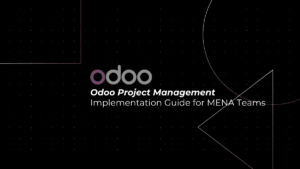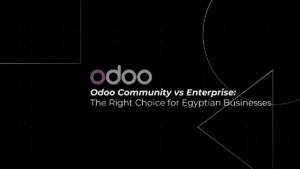In the dynamic and diverse economic landscape of the Middle East and North Africa (MENA), small and medium enterprises (SMEs) face unique challenges and opportunities. Effective financial management is crucial for these businesses to thrive, especially in areas like strategic financial planning and cash flow management. Zoho Books, a comprehensive accounting solution, offers powerful tools tailored to meet these needs, helping MENA businesses not only survive but excel in a competitive market.
Table of Contents
ToggleUnderstanding the Economic Context of MENA for SMEs
The MENA region presents a vibrant mix of developing and mature economies, each with its specific financial regulations, taxation policies, and business cultures. SMEs in this region must navigate varying degrees of economic stability, inflation rates, and market growth opportunities. This backdrop makes robust financial tools like Zoho Books not just beneficial but essential for strategic planning and operational efficiency.
Building a Strong Foundation: Zoho Books for the MENA Market
Zoho Books offers a robust accounting solution catering to the specific needs of businesses in the MENA region. Here are some key features that make a difference:
Multilingual Support: Manage your finances in Arabic and other languages commonly used in the MENA region, ensuring clear communication within your team and with clients.
Multicurrency Functionality: Easily handle transactions in various currencies, including the regional currencies like the UAE Dirham (AED) and the Saudi Arabian Riyal (SAR). This simplifies accounting for international trade, a significant factor in the MENA economy.
VAT Compliance: Zoho Books streamlines VAT calculations and reporting, ensuring you comply with regional tax regulations. Generate detailed VAT reports and simplify the filing process.
Right-to-Left Language Support: Zoho Books accommodates right-to-left script languages like Arabic, providing a familiar and comfortable user experience for businesses in the MENA region.
Your Partner in Strategic Financial Planning

Strategic financial planning is about setting long-term financial goals and developing strategies to achieve them. It involves detailed budgeting, precise forecasting, and comprehensive financial scenario analysis. Zoho Books provides SMEs in the MENA region with the tools to undertake this critical activity effectively. Here’s how:
Budgeting:
- Budget Creation: Zoho Books allows businesses to create detailed budgets that can track against actual revenues and expenses in real-time, helping businesses stay on target.
- Departmental Budgeting: Allocate budgets to different departments or projects, providing specific insights into each area’s financial health.
Forecasting:
- Financial Projections: Use historical data within Zoho Books to project future revenue, expenses, and cash flow trends.
- What-if Analysis: Run different scenarios to understand potential impacts on finances due to changes in market conditions, such as a sudden economic downturn or an unexpected surge in demand.
Financial Reporting:
- Custom Reports: Generate custom reports that reflect the unique needs and compliance requirements of MENA region businesses.
- Insightful Dashboards: Access dashboards that provide a quick overview of financial health, crucial for making informed strategic decisions.
Benefits of Strategic Financial Planning
- Goal Alignment: Aligns long-term financial goals with market conditions and risks in the MENA region.
- Informed Decisions: Utilizes historical data and financial projections via tools like Zoho Books for smarter, data-driven decisions.
- Economic Adaptation: Adapts strategies effectively across diverse economic landscapes within the MENA region.
- Funding and Investment: Helps secure timely funding and manage investments prudently to optimize financial stability and growth.
Optimizing Cash Flow Management for MENA SMEs
Cash flow management is critical for the survival and growth of any business, particularly in the MENA region where market fluctuations can be abrupt and severe. Zoho Books enhances cash flow management through several advanced features:
Automated Invoicing:
- Timely Billing: Automate the invoicing process to ensure that bills are sent out promptly, reducing the time it takes to receive payment.
- Recurring Invoices: Set up recurring billing for regular customers, ensuring steady cash flow without manual intervention.
Efficient Payment Processing:
- Online Payments: Integrate with various payment gateways supported in the MENA region to make it easier for clients to pay their invoices online directly.
- Payment Reminders: Automatic reminders for due payments help reduce delays in receivables.
Expense Tracking and Management:
- Real-time Expense Recording: Record expenses as they occur using the mobile app or desktop platform, complete with receipt uploads and categorization.
- Vendor Management: Manage vendor accounts and automate accounts payable to optimize cash outflows.
Benefits of Cash Flow Management with Zoho Books
- Operational Stability: Ensures availability of cash to cover daily operations, crucial for continuous business activity.
- Automation with Zoho Books:
- Manages payables efficiently to maintain supplier relations and control cash outflow.
- Streamlines invoicing and receivables to improve cash inflow.
- Real-time Insights: Provides immediate visibility into cash positions, allowing for quick financial adjustments and better cash flow forecasting.
- Proactive Financial Planning: Anticipates and prepares for future cash needs, preventing cash flow issues before they arise.
Integration and Automation: Bringing It All Together
Zoho Books stands out not only for its individual features but also for how well it integrates these features to provide a seamless user experience. Integration with other Zoho apps like Zoho CRM and Zoho Inventory makes Zoho Books a central part of a holistic business management ecosystem.
Automation in Zoho Books extends beyond invoicing and payments to include aspects like bank reconciliation, financial reporting, and even regulatory compliance reporting, which is crucial in the MENA region due to its diverse regulatory environment.
Best Practices for Implementing Zoho Books in MENA SMEs
- Customize to Local Needs: Customize Zoho Books to align with local taxation laws, currency, and language preferences prevalent in the MENA region.
- Train Thoroughly: Conduct comprehensive training sessions for all users to maximize the benefits of Zoho Books’ comprehensive features.
- Leverage Support: Utilize the extensive support offered by Zoho, including localized support for the MENA region, to address any issues promptly.
As an authorized partner of Zoho, PyramidBITS will offer you the best implementation process for your business. Schedule a free consultation session now!
Zoho Books as Your Trusted MENA Partner
Zoho understands the unique challenges faced by businesses in the MENA region. Here’s how they go beyond just offering software:
- Regional Support: Access dedicated customer support with representatives familiar with the MENA business landscape and regulations.
- Industry-Specific Solutions: Explore Zoho Books’ industry-specific solutions tailored for businesses operating in various sectors within the MENA region, such as retail, construction, or hospitality.
- Compliance Updates: Stay informed about any changes in tax regulations or financial reporting requirements in the MENA region. Zoho keeps its software updated to ensure compliance.
For SMEs in the MENA region, mastering financial planning and cash flow management is more than a necessity; it’s a strategic advantage. Zoho Books provides the tools to turn these financial management tasks into opportunities for growth and stability. By leveraging the advanced capabilities of Zoho Books, MENA businesses can navigate the complexities of their economic landscape with confidence and foresight, ensuring their long-term success in the global marketplace.




